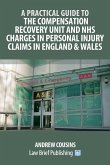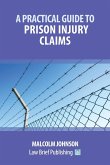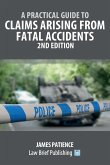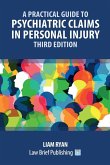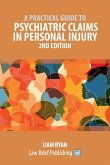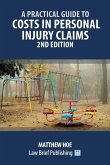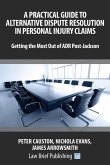Surveillance evidence in personal injury claims can be a highly contentious area. Evidence is often relied upon with the intention of undermining the fabric of a claim, and can sometimes lead to allegations of fraud and fundamental dishonesty being pursued. It is an area of law that has advanced significantly with developments in technology, and is therefore never far from the scrutiny of the higher courts. As a result, the law in this field has grown largely out of precedent rather than legislation. This book aims to set out how the law in relation to surveillance evidence affects a claim, how surveillance evidence can be obtained and admitted into evidence in personal injury claims and some of the possible effects such footage can have on a claim. Whilst surveillance evidence is most commonly obtained by defendants in personal injury claims, the book is written with a neutral view on the subject matter and with the aim of assisting those practitioners who have to deal with these issues in their day to day case handling. ABOUT THE AUTHOR Andrew Cousins is a Barrister at DAC Beachcroft, a Door Tenant at 7 Harrington Street Chambers and a Visiting Law Lecturer at BPP Law School. He advises on a wide range of civil litigation matters. Andrew qualified as a Legal Executive in 2006, a Solicitor in 2011 and was called to the Bar by the Honourable Society of the Middle Temple in 2017. He was appointed to sit as an Assistant Coroner in 2018. Andrew has a background in personal injury, coronial and regulatory law. This is Andrew's second book, his first, A Practical Guide to the Compensation Recovery Unit and NHS Charges in England & Wales, was published in July 2020. Andrew has advised both Claimants and Defendants in relation to personal injury work and has given a number of training presentations on this area of law.
Hinweis: Dieser Artikel kann nur an eine deutsche Lieferadresse ausgeliefert werden.
Hinweis: Dieser Artikel kann nur an eine deutsche Lieferadresse ausgeliefert werden.


